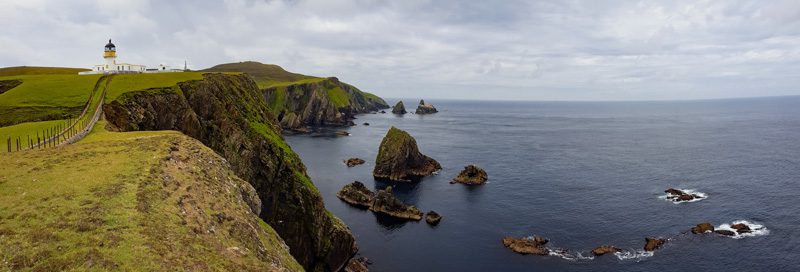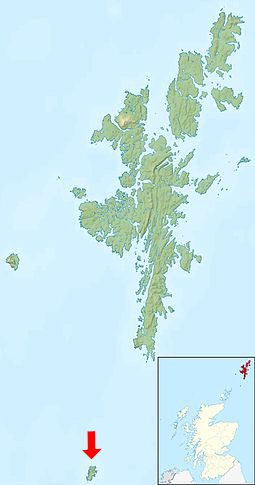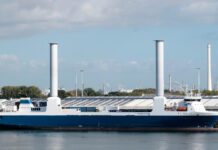
It may be better known for woolly sweaters than renewable energy, but the most remote inhabited island in the UK is to finally receive round-the-clock electricity thanks to an innovative £2.6m project involving the latter.
Located between Orkney and Shetland, Fair Isle has depended upon a combination of diesel generators and wind power since the 1980s, with its small group of residents – currently numbering 55 – regularly facing lights-out between 11pm and 7am if there is not enough wind.

The project, led by community group Fair Isle Electricity Company, aims to install three 60kW wind turbines, a 50kW solar farm and battery storage on the island. It will also extend a high voltage network to the north of the island to enable grid connections to the Scottish Water treatment works, Fair Isle Bird Observatory, an airstrip and the North Haven harbour.
Funding for the project got underway earlier this year with an award of more than £1m through the Scottish Government-led Low Carbon Infrastructure Transition Programme (LCITP). It had previously issued a funding call for large-scale transformational low carbon infrastructure demonstrator projects. Other contributors include Big Lottery, Shetland Islands Council, National Trust for Scotland, Scottish Water, Fair Isle Electricity Company and Fair Isle Bird Observatory.
It is hoped the additional electricity provision will help make the island a more attractive destination for visitors or potential residents.
A lack of grid capacity has in recent years disadvantaged rural communities, making it difficult for them to connect renewable sources to the grid, leading to a situation where they are charged more for energy from the grid while being unable to benefit when they generate surplus energy.
Responding to the announcement, Stephanie Clark, Policy Manager at Scottish Renewables, said: “Renewable technologies are bringing power to remote communities which otherwise either wouldn’t have electricity, or would have to rely on diesel generators for their supply.
“It’s great to see Fair Isle will soon join the likes of Eigg and Gigha in taking advantage of a green electricity network.
“Scotland’s geography and abundant renewable energy resource make it the perfect place to test these advanced energy systems.
“Expertise gained here is already being used in countries like Malawi and Indonesia. With 600 million people in Africa alone still without access to electricity, there remain many remote communities across the globe which can benefit from systems like these.”







